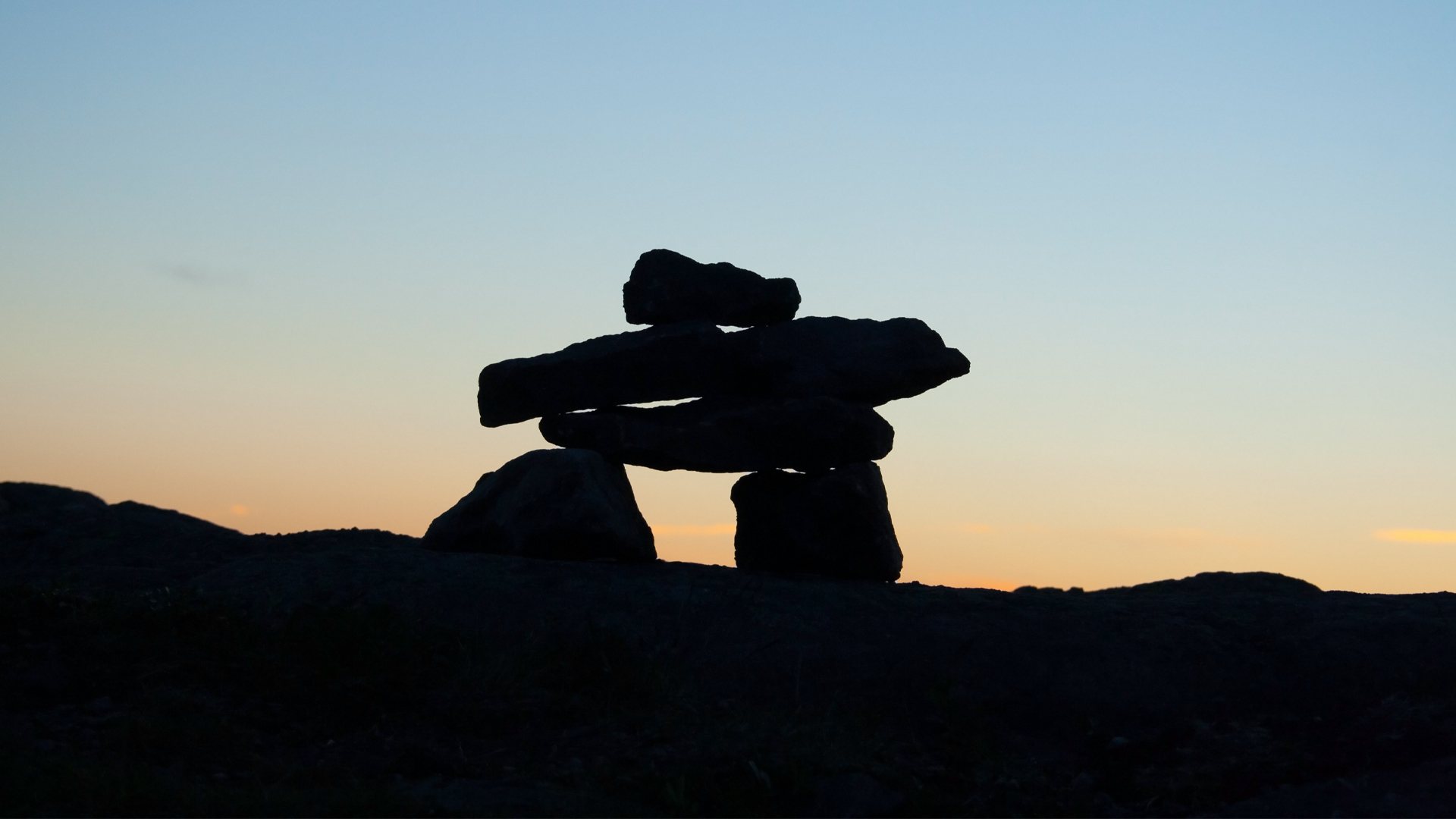
Indigenous identity has long been a topic of (un)critical debate in Canada, usually shaped by colonial stories rooted in assimilation and erasure. The impact of Sir John A. MacDonald, the Indian Act, the 1969 white paper and Joey Smallwood continues to influence relations within and between Indigenous and non-Indigenous societies.
In my professional and personal experience, the nature of identity dialogue has often been triggered by Indigenous relations with the state in reaction to the colonial world around us, not due to any changing nature of Indigenous identity.
I come from Inuit and European ancestry on both the maternal and paternal sides of my family. I was born and raised on the lands of my Inuit ancestors off the southeast coast of Labrador (NunatuKavut) in the remote community of Black Tickle on the Island of Ponds.
My Inuit ancestral relations come from Kikkertet (the place of many islands) and I continue to call this place home.
Inuit in my community have always ensured the survival of our families in ways that ensured the survival of our culture. We have a right to give expression to who we are, no matter where we go.
My perspectives are shaped by my sense of belonging to the remote Island of Ponds. I’ve committed to decolonizing the stories told about me and my people and I’ve been privileged to do this through my work as chief rights negotiator with the NunatuKavut Community Council (NCC) and as an assistant professor at Memorial University.
Decolonizing research, education and teaching should contribute to healing relationships, not harming them.
Indigenous identity debates intensify at universities
Yet, Indigenous identity debates have recently crept into the administration of universities, leaving these institutions scrambling to “verify” the Indigenous identity of faculty, staff and students, and to get rid of “fraudsters” – a complex task reminiscent of a colonial era.
Undoubtedly, this will create barriers to transforming research and education and to strengthening university-Indigenous community relations.
In a 2022 CBC opinion piece, Natan Obed, president of the Inuit Tapiriit Kanatami (ITK), claimed that academic institutions should follow the definition of Inuit outlined in the Inuit Nunangat policy and exclude – among others – the people represented by the NCC, an organization which he noted was previously called the Labrador Métis Nation (LMN).
Obed says the NCC’s claims are threatening to take resources away from “real” Inuit.
However, the Inuit Nunangat policy is not a rights recognition document and does not include or exclude any Inuit outside of the four land claimant groups represented by the ITK, which is a political advocacy group that has never had a role to play in determining Inuit identity.
Furthermore, there is nothing nefarious about the fact that NCC was previously called the Labrador Métis Nation.
Other Indigenous groups share a similar story of organizational evolution – one where access to federal resources to do research and file a land claim required that Indigenous organizations fit into identity boxes created by Canada.
The earliest land claim submission of NCC (as it was under LMN) has always been rooted in Inuit history and culture. Our people have never wavered in the expression of our Inuit culture.
It is Obed’s notion of who is, or is not, a “real” Inuit that should alarm us all.
Universities often use the wrong test of Indigeneity
Yet, in April – without any due or prior engagement that I am aware of – Memorial University’s vice president Indigenous office communicated to the NCC that it would unilaterally exclude us from an Indigenous roundtable discussion on identity, favouring the inclusion of only those groups in the province that have already settled land claims, as well as federal recognition.
Ironically, this position ignores the fact that NCC has already been recognized as Indigenous by the courts, the federal government, and the government of Newfoundland and Labrador, and has entered negotiations under Canada’s current rights recognition policy.
It ignores the fact that most Indigenous groups in Canada do not have settled land claims and would potentially be excluded by this criterion.
It ignores genealogical, anthropological and archaeological evidence – research primarily led in partnership between Memorial and NunatuKavut Inuit.
It ignores a historic and well-documented treaty between NunatuKavut Inuit and Great Britain in 1765.
It ignores the fact that NunatuKavut Inuit have been fighting for our rights for generations. We have been impacted by colonialism in ways like other Indigenous peoples in Canada.
In September, the provincial government issued a formal apology to NunatuKavut Inuit who attended residential schools and their families. The NCC has a memorandum of understanding (MOU) with the province on education, which cites a commitment to do better for future generations.
Currently, NCC is represented on the Labrador Campus governing constitution (as one of three Indigenous groups) and has a multi-decade relationship with Memorial, including ongoing research, student supervision, teaching, and program and curriculum development.
Fortunately, Memorial’s earlier decision to exclude NCC was halted following a discussion between NCC president Todd Russell and Memorial leadership.
In December, Memorial announced that a third-party organization from Ottawa was hired to look into Indigenous verification on campus – a move that frustrates many of us.
Matters of Indigenous “identity verification” have become a turbulent topic at other universities, too. The University of Saskatchewan, Queen’s University and Dalhousie University are creating policies that are already causing Indigenous faculty and students harm by creating internal authorities to arbitrate Indigenous identity.
The dialogue around “fraudulent claims to Indigenous identity” is an important conversation. However, the current reactions to these claims by some universities leave me wondering whether current identity verification discussions are simply a knee-jerk reaction to that which is not well-understood, and defaulting to false authorities where such authorities cannot really exist.
Some of these universities are now being challenged on their approach. A recent human rights and legal analysis from Naiomi Metallic and Cheryl Simon at the Schulich School of Law at Dalhousie points out that some universities conflate self-identification with academic fraud.
They argue that this dialogue must be understood, then analyzed critically and contextually. They specifically identify the many errors with Dalhousie’s path to policy development.
Still, some universities are responding in ways that undermine Indigenous rights to self-determine, favouring colonial policies and legislation that have sought to get rid of us.
Generations of Indigenous leaders have fought to decolonize Indigenous identity – largely in response to how Canada has distorted identity and boxed us up into manageable pieces, fast-tracking assimilation efforts.
Have we forgotten the long, winding road of Indigenous political struggles? Remember when we challenged the false authority of the “other” in defining who we are? What happened to our right to self-determine from our own places? Isn’t identity sacred?
Universities become false authorities
Universities think they can make decisions on Indigenous identity, ignore political struggles and colonial histories while seeking to “Indigenize” and uphold commitments to Indigenous communities like mine. I think not.
The researcher/researched relationship has been articulated time and time again, noting damaging impacts to Indigenous communities, lands and lives. Consequentially, many Indigenous communities have only very recently begun re-engaging with academia.
In response to politically motivated narratives related to false claims to Indigenous identity, some universities are leaning on historically rooted colonial conversations around identity and are perpetuating great harm. We are now seeing universities conflate legitimate Indigenous identity with the Indian Act and settled land claims. Irony or intent?
Discussions about Indigenous identity verification – in the ways I’ve seen and heard – continue to deny Indigenous rights to self-determine and do not actually address fraudulent claims to identity. This seems a strange response to a stated “pretendian” crisis.
Identity dialogue has changed (again) and is being utilized by actors with little to no expertise on complex identity issues. The misguided and non-evidence-based actions of the few are unleashing unethical, traumatic and very likely discriminatory Indigenous identity policy efforts within academic institutions.
The irony continues. Many Indigenous communities, such as in NunatuKavut, have worked to improve relationships with academic institutions. For many, this is necessary to build trust and consent to processes that have otherwise and historically harmed our people.
Who gets to tell the story?
Bringing it back home to Island of Ponds, we have taken up the work to address the harms brought upon our people by Western research specifically by those who insisted that they know best. They don’t.
Western research practices examined us, measured us and then told other people stories of who we are and who we are not. Academics have always benefited from their scholarship about our people (in the form of research grants, publications, being touted as experts in the field, etc.)
As the tradition of “measuring, poking and prodding” continues in the quest for universities to verify who is and who is not Indigenous, we need look no further than the policy efforts around us to understand that the old way of “outsider knows best” has not vacated our relationships with the university.
As institutions leading these efforts are purportedly creating safe spaces for ALL Indigenous peoples, we must remain acutely aware that these same institutions are simultaneously advocating a calculated policy that seeks to get rid of those Indigenous peoples who fail to meet the “test” for the institutionalization of their (our) identity within the academy.
Regrettably, some institutions of “higher learning” are equipping themselves with select evidence and select influence.
The same institutions that claim to be centres of excellence are generating harm and revictimizing “legitimate” Indigenous peoples in processes that disregard lived experiences and colonial histories.
Where do we go from here? It is possible to respectfully discuss matters of identity in ways that preserve human dignity and uphold Indigenous rights to self-determine.
Are some universities intent on perpetuating colonial policies and legislation that sought to get rid of us in the first place? Adherence to colonial ideologies around identity in academia has never, and will never, lead to responsible and ethical scholarship or transformative education.
Indigenous peoples will always rise up in defence of our rights to be who we are, no matter where we go. We have seen this many times before. History truly is cyclical.









